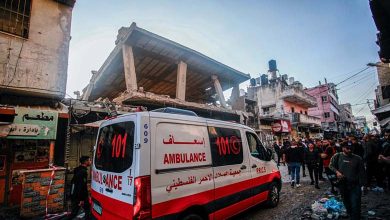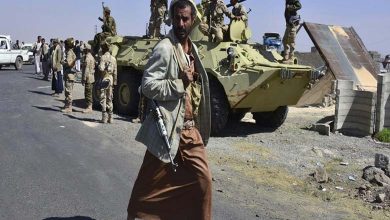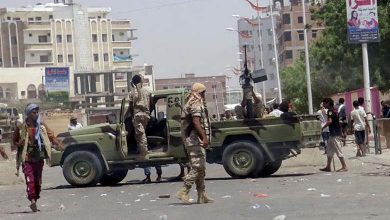Houthis and Cholera: An Alliance Threatening Public Health in Yemen

In northern Yemen, a humanitarian tragedy unfolds as siege aligns with epidemics, with cholera emerging as one of the deadliest diseases, threatening an unprecedented health catastrophe. The crisis worsens due to the policies of the Houthi militias, hindering the delivery of vaccines and medical aid, making it difficult to control and contain the epidemic.
Cholera Rampant in the North
From the capital Sana’a to the governorates of Saada and Hajjah, healthcare institutions find themselves facing significant challenges in receiving and treating the increasing numbers of cholera patients. These challenges are exacerbated by the policy of concealment adopted by the Houthi militias, hiding the true statistics of the infected, complicating efforts to assess the crisis’s magnitude and deal with it effectively.
Epidemics are used as a pressure tool in negotiations with international organizations, hindering efforts to control the epidemic and preventing the delivery of necessary medical assistance. In the capital, local sources warn of a new and powerful wave of cholera, exacerbated by deteriorating health conditions, accumulation of waste in the streets, and a shortage of clean water, creating a fertile environment for the spread of infectious diseases.
These challenging conditions underscore the urgent need for international intervention to improve healthcare services, ensure the availability of vaccines and necessary treatments to curb the spread of cholera and other diseases, but political obstacles impede this vital path.
Vaccine Preventions and Epidemic Spread
Health efforts in Yemen face significant obstacles, especially in areas under Houthi control, where the so-called Ministry of Health obstructs vital vaccination campaigns. These hurdles are based on claims that the provided vaccines are not safe, posing a major challenge to public health. These claims expose the population to an increased risk of easily preventable diseases through vaccinations, such as cholera, measles, and others.
The negative impact of these policies is manifested in the increasing cases of infectious diseases, complicating the task of international and local organizations working in the health field. Vaccination is one of the most effective means of preventing and controlling the spread of diseases; thus, its prevention significantly hampers efforts to protect the population, especially children and those most at risk.
Saada: Epicenter of Neglect and Epidemic
In Saada, the heartland of the Houthis, the health situation has noticeably deteriorated with the widespread outbreak of cholera, a serious indicator of the worsening humanitarian crisis in the province. Despite the urgent need to enhance health readiness to combat this epidemic, militias have shown no initiative to improve medical response or raise the level of healthcare services to deal with the crisis.
The International Committee of the Red Cross has reported the spread of acute watery diarrhea and cholera in the region, with over two thousand cases recorded since last November, highlighting the urgent need for urgent medical and humanitarian interventions. In response to the emergency situation, the committee has established a center for treating acute watery diarrhea at the rural Monabbih Hospital, to provide necessary care for the infected and attempt to curb the spread of the epidemic.
These steps are part of international efforts to assist Yemen in overcoming its health challenges, but the need remains for further support and resources to ensure control of cholera and prevent it from becoming a pandemic threatening the lives of thousands. Cholera is a preventable and treatable disease if sufficient healthcare resources and rapid access to treatment are available.
Hajjah: Silence Conceals the Epidemic
In Hajjah governorate, cholera is silently and alarmingly spreading, with the Abes district, known for its population density and reception of displaced persons, recording hundreds of confirmed cases.
This outbreak comes amidst harsh living conditions, where the population suffers from a severe shortage of clean water and deterioration of sanitation services, contributing to the acceleration of infections.
The situation in Hajjah is a clear indication of the urgent need for humanitarian and health interventions to curb the spread of the epidemic. The absence of adequate healthcare infrastructure hampers the ability of local authorities and humanitarian organizations to effectively respond to the emergency situation.
Increasing infections indicate that cholera continues to pose a significant threat to public health in the region, requiring concerted international and local efforts to provide clean water and improve healthcare services for the population.












